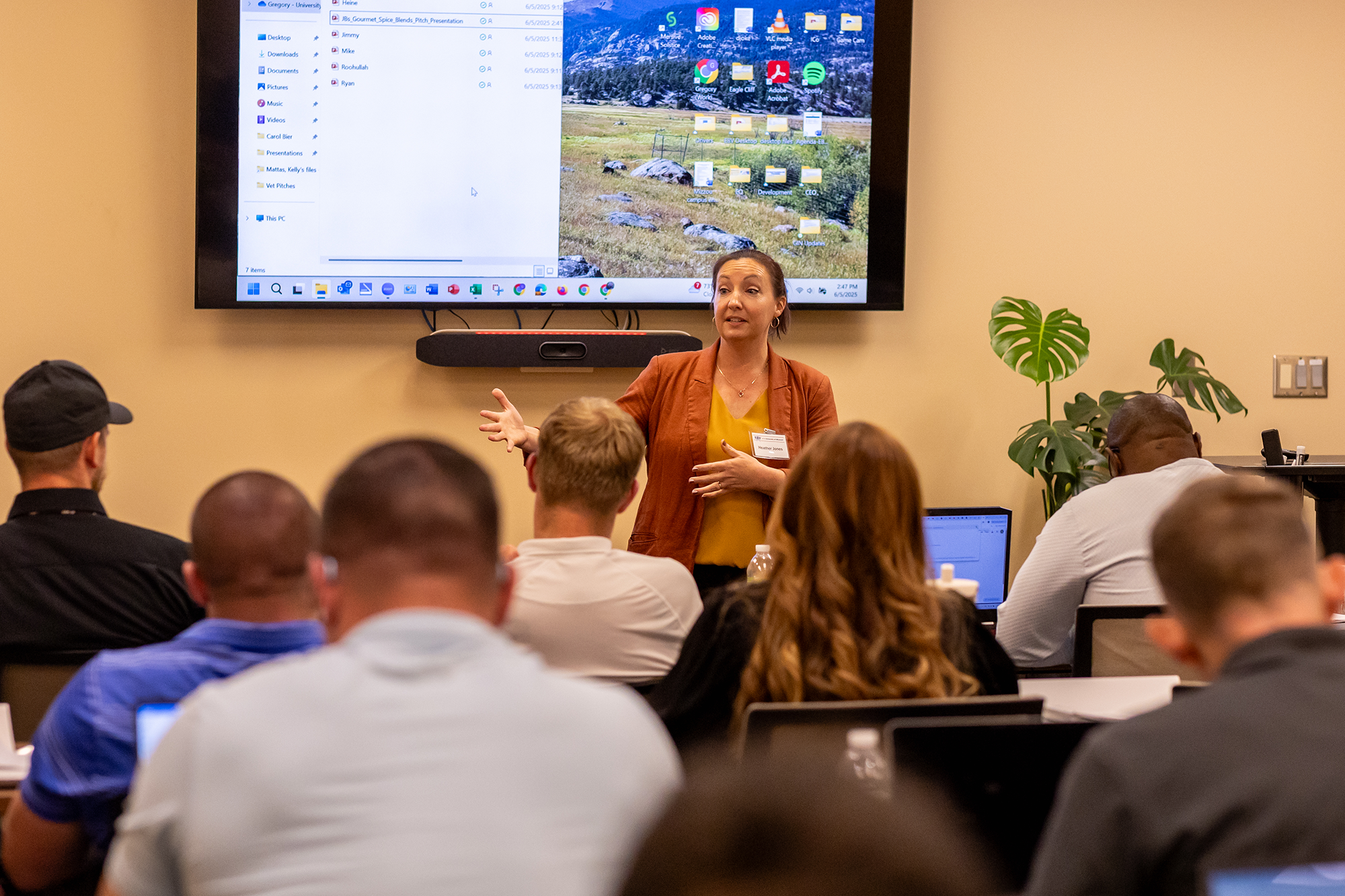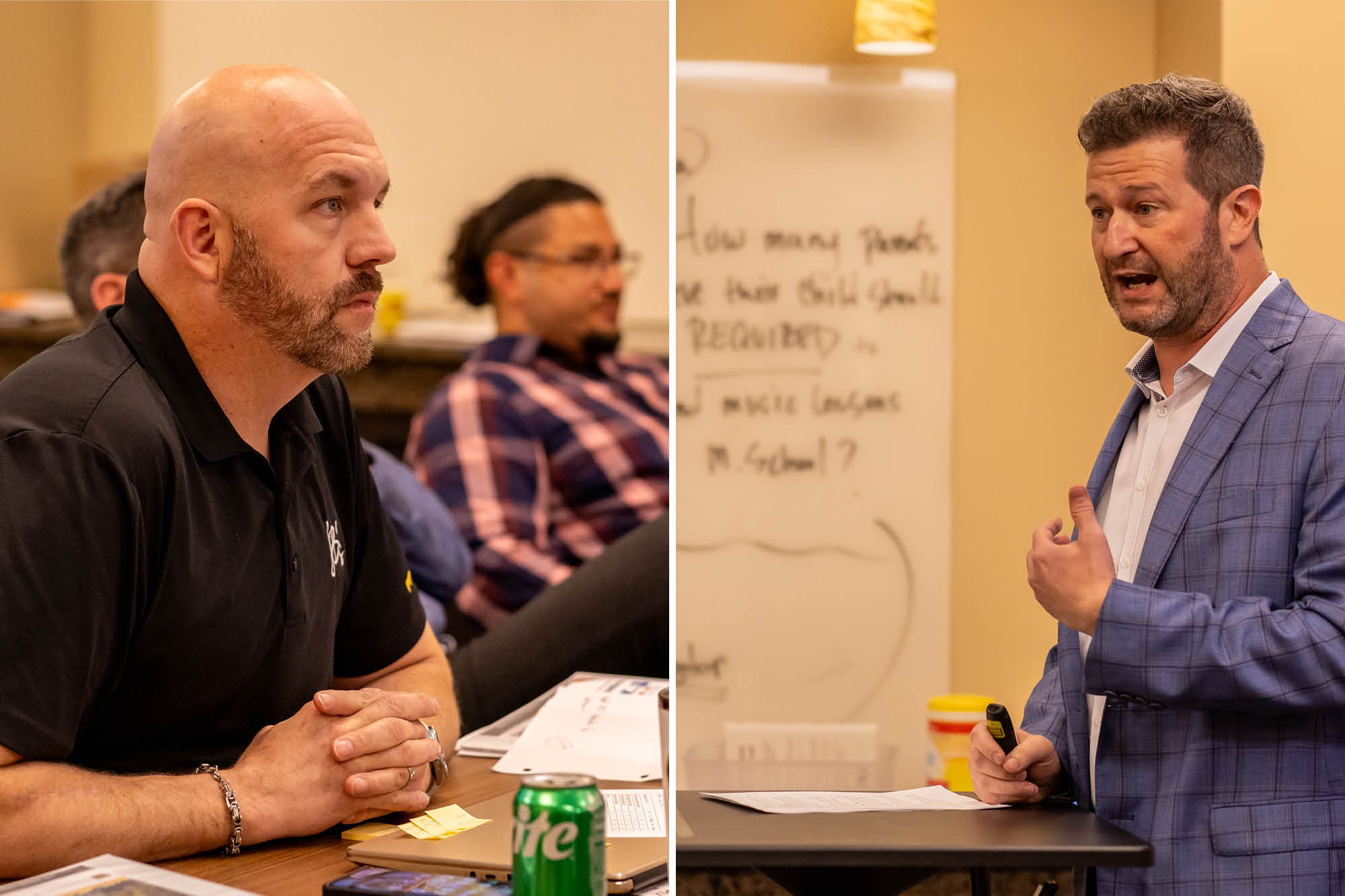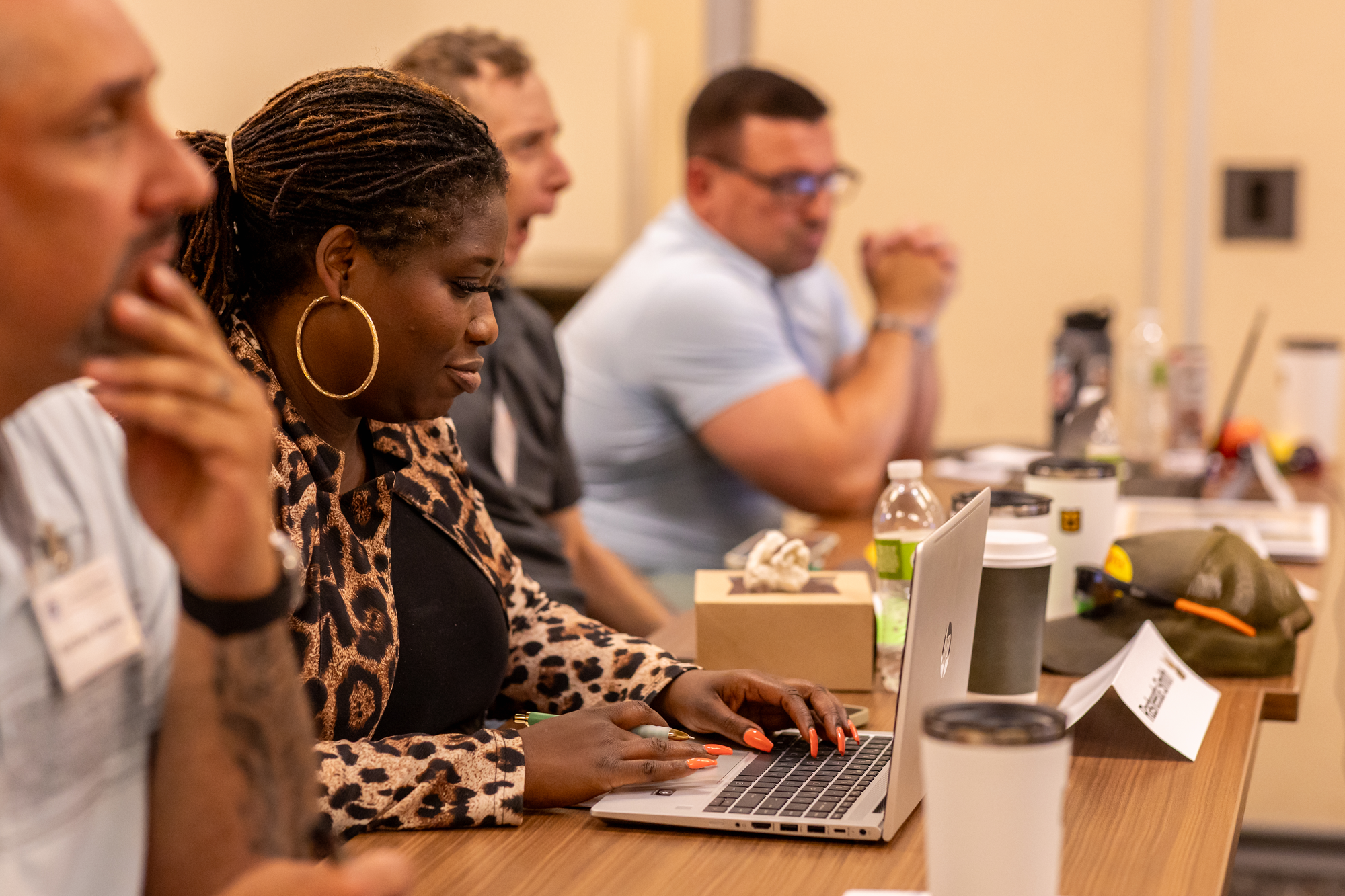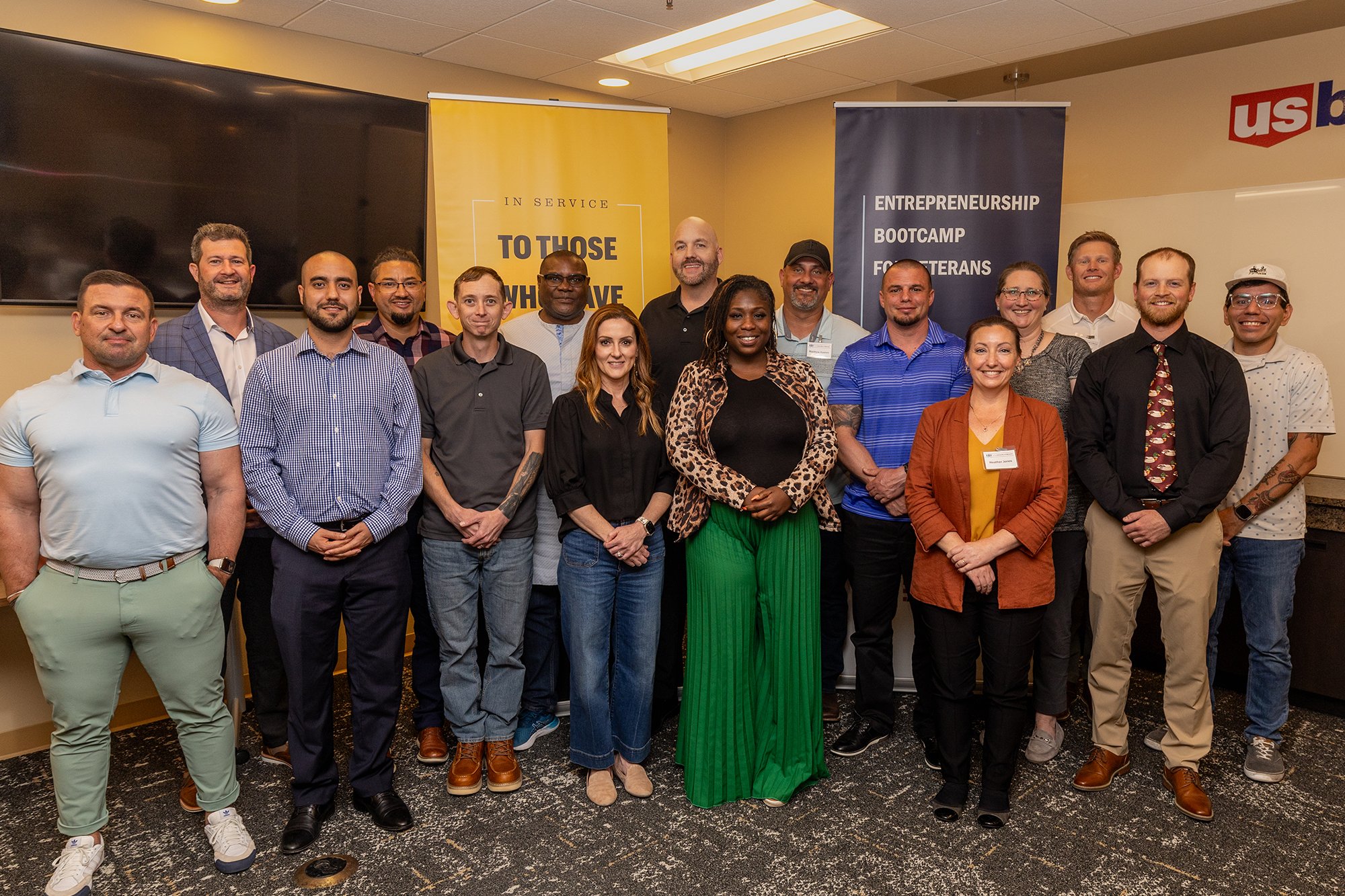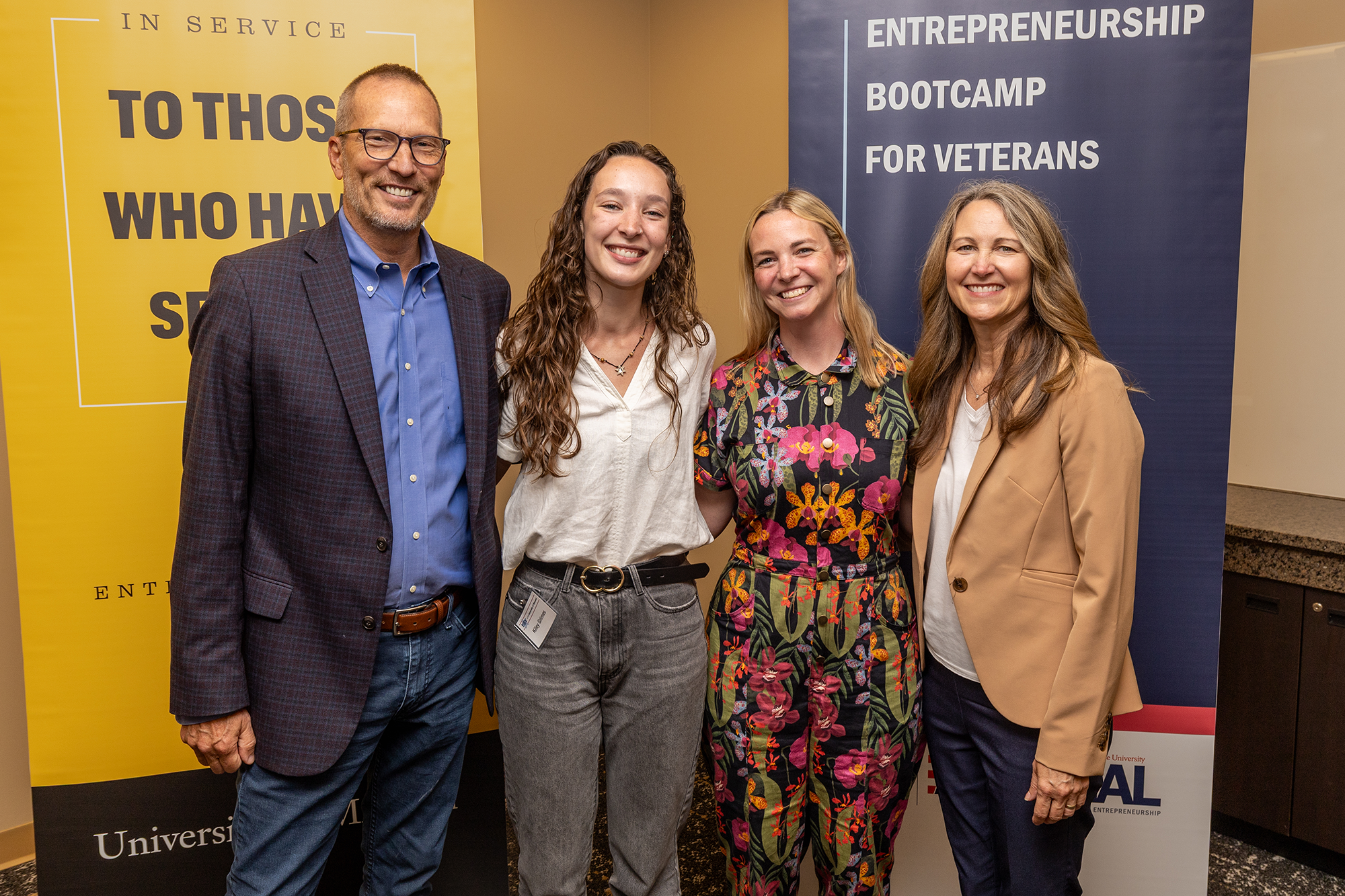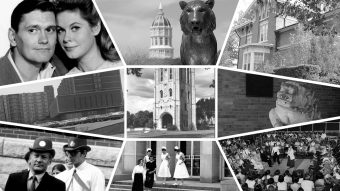By Laura Roloff
July 7, 2025
Photos by Gretta Cohoon
Every summer for a decade, the University of Missouri has led an Entrepreneurship Bootcamp for Veterans (EBV) program that leverages higher education to offer training to post-9/11 veterans with service-connected disabilities. Only eight universities in the U.S. offer the program.
Retired marine Joshua Brack, who hails from Ozark, Missouri, said EBV helped him strengthen the infrastructure of his company, JB’s Gourmet Spice Blends.
“Making and selling the product and getting it out there; I had no problem with that,” Brack said. “It’s understanding the back end of business ownership and knowing how to run it correctly. That’s why I signed up for EBV.”
This summer, EBV included an intense eight-day residency on campus and an online business fundamentals course taught by J. Scott Christianson, associate teaching professor of management and director of the Center for Entrepreneurship and Innovation at the Trulaske College of Business.
“The secret sauce of Mizzou’s EBV program is the community support and engagement,” said Greg Bier, entrepreneur-in-residence at Griggs Innovators Nexus, past executive director of entrepreneurship programs and an Army veteran. “About 75% of our workshops are led by community experts who share lessons learned and take a deep dive when answering questions.”
Kelsey Raymond is a prime example of the successful business leaders that Bier recruits for EBV. Before coming to Mizzou in May as incoming executive director of entrepreneurship programs, Raymond served as chief operating officer of Intero Digital, which recently acquired Influence & Co., a marketing agency she co-founded in 2011.
“After that first year, I kept coming back because it’s such a rewarding experience,” Raymond said. “All of the veterans in the program are so kind and motivated to launch or grow their business that the energy in the room is just incredible.”
EBV is headquartered at the D’Aniello Institute for Veterans and Military Families at Syracuse University, which relies on its consortium of university partners to provide a rigorous curriculum each year.
Veterans United Foundation has provided more than $1.2 million in funding for EBV since 2015 when Mizzou joined the consortium. Their sponsorship has enabled 157 veterans from 37 states to participate at no cost.
James Halleran, a veteran from Jacksonville, Florida, who spent 25 years in the Navy tried a few civilian jobs before focusing on his plan to open a facility for veterans with substance abuse and mental health issues.
“I just thought, ‘Why am I making somebody else’s dream come true?’” Halleran said. “I’ve been blown away by this program. These folks are teaching tangible, applicable skills. Everyone cares so much.”
According to data released in March 2025 by the U.S. Department of Labor, 48 percent of veterans who enlisted after September 2001 — about 2.5 million people — report having a disability related to their military service. This figure is much higher than for veterans of previous eras because medical advances have made it possible to survive once-fatal injuries. But as fatalities have declined, the number of veterans with disabilities has risen, and more are unemployed compared to those without disabilities.
“Many of these veterans have limited opportunities to climb the corporate economic ladder due to their injuries,” Bier said. “Owning a small business is another way to contribute to the economic engine in their community and the nation.”
Successful entrepreneurs understand that they cannot go it alone, Bier said, adding that the most important part of the EBV experience is the lasting bond that each group forms by the end of their residency.
“When I’m facing a challenge, I can look at our cohort of veterans and see people who’ve been severely injured serving their country,” Bier said. “They truly inspire me with their dedication and grit.”
View a list of companies owned by veterans who participated in EBV at Mizzou.
